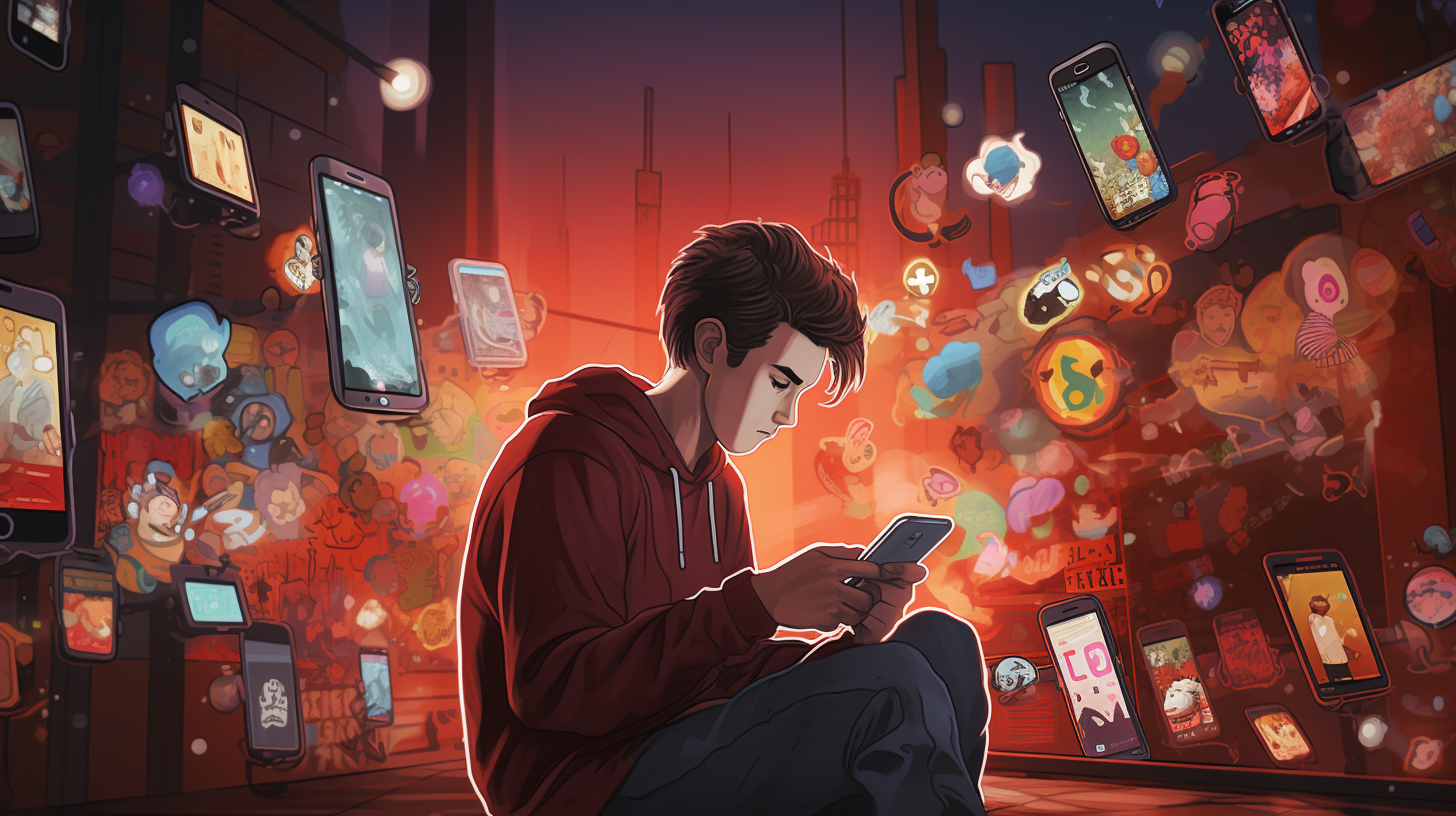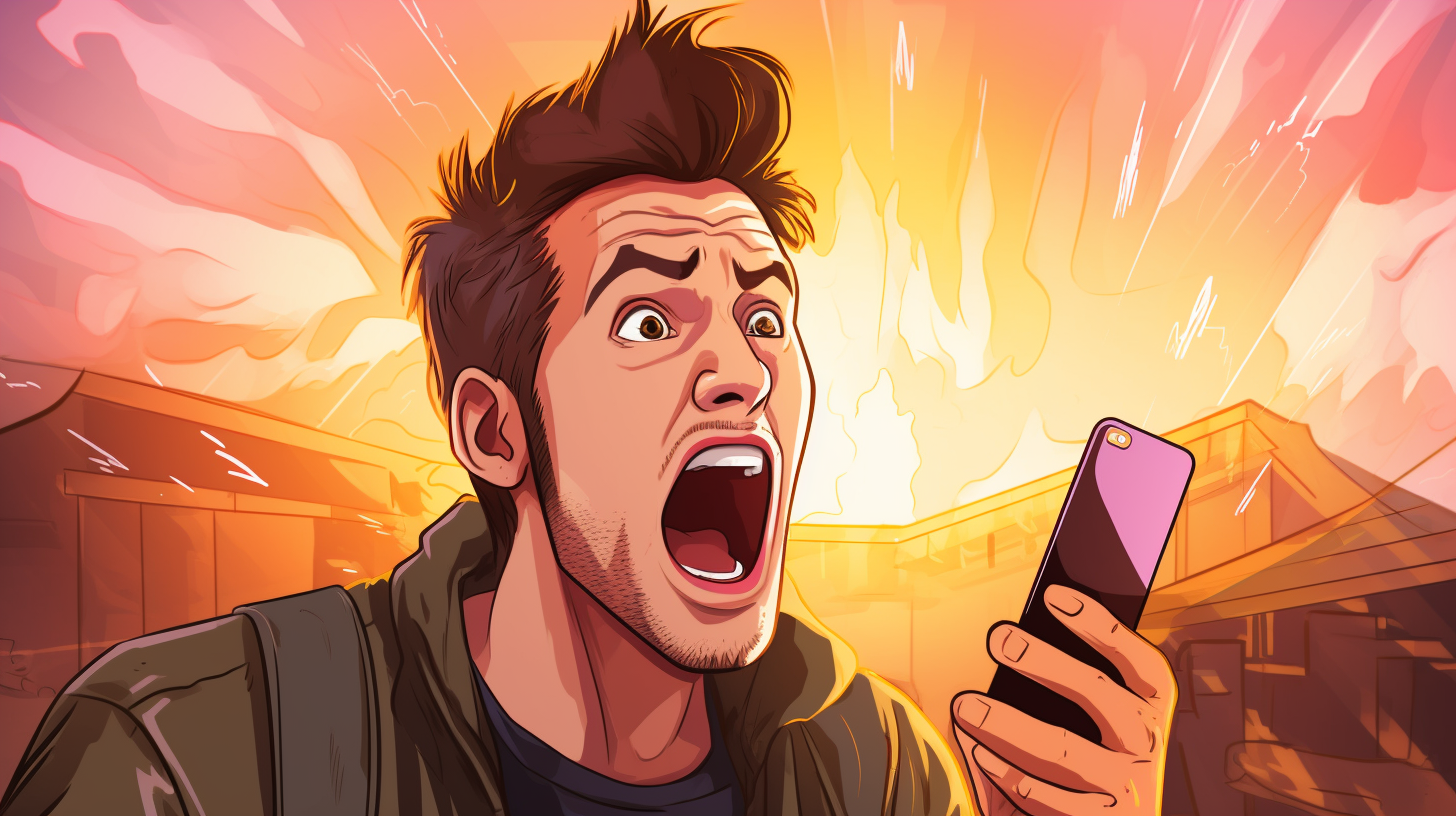Why oversharing is making us feel more isolated 🤫

Ah, the internet. The digital equivalent of your local tip or dump. The place where your thoughts and feelings go to die.
That may sound harsh, but sadly it’s true. On social media alone, every minute of every day, we share:
That is a lot of thoughts and feelings every 60 seconds. Most will receive minimum engagement. This overlooks all the private messages we send to each other, and those two-wine-in conversations we have with colleagues after work - for the rarefied few of you who still go to an office.
The truth is, we share a lot with each other. Whether it’s what you ate last night, telling a friend about the creepy guy on the bus, or the date that went horribly wrong. It’s a very normal experience.
But thanks to our good friend the internet, we share more frequently than ever before - and it’s starting to alter how the world works. But why? Why do we love to share, and what are the impacts of our need to share?
I’m going to be exploring this in detail at this week’s The Brink!
Sharing is caring

First of all, we need to clarify what we mean by oversharing. Oversharing is described as “revealing an inappropriate amount of detail about one’s personal life” says Dr Kirren Schnack, a clinical psychologist.
Now it’s important to note that sharing in itself is not problematic. How would we know each other if not for sharing? Instead, there’s a fuzzy line between sharing information as part of an exchange, and sharing information that has motivations beyond just the casual exchange of information.
It’s one of those moments where the phrase, “I know it when I see it” comes to mind. It’s the late night social media post about a relationship ending, or, if you’re from the younger generation, it’s filming yourself crying and sharing it with the internet.
The motivations for this sharing gets muddled with parts of ourselves we may or may not be aware of.
“People may overshare because of a desire for attention or validation, a lack of boundaries, a need for emotional regulation, social norms that encourage sharing, or mental health issues,” says Niki Davis-Fainbloom, a sex and relationships expert and senior writer at Practical Psychology.
While on the positive side of the spectrum, it can help us process emotions and feel more connected to others. On the other side, oversharing can create a vulnerability gap where our need to be understood can be used against us.
If you want a fine example of institutional exploitation of vulnerable people, check out the BBC podcast on the The Lighthouse self help group.
Growing Pains

That feeling of being unseen, or worse, exploited for our vulnerability is something most of us experience in childhood. You know, that excruciating moment where you tell your best friend something in confidence and they use it as currency with the wider group? Awful stuff. While extremely painful, it serves as a lesson to be more vigilant when it comes to what we share and with whom.
But for others, that lesson, and that vigilance appears to have not formed, meaning we seek out the same connection through revealing deeply personal things about ourselves. The hope can often be, we form a closeness with the other, but are wary we may not get what we want.
On social media, it’s more nuanced than that. Oversharing can be used in very powerful ways to confirm ideas around self worth. More on that later.
The reason that defence doesn’t develop can be multi-faceted. People with complex histories of trauma and PTSD tend to not pick up on social cues that tell us when is, and when isn’t the right time. So if there is someone you know that is a chronic oversharer, there may be something lurking in their past that prevents them from building boundaries around sensitive information.
And according to new research, the risk of oversharing in conversation actually increases as people age. In tests, researchers discovered that older subjects provided listeners with more irrelevant details than their younger peers.
It’s worth clarifying some of the definitions I’m using here: there’s a difference between oversharing and being vulnerable. That difference, ultimately comes down to trust. In a high trust environment, sharing can be powerful. In low-trust environments it can be disempowering, which is what many people experience when they share on line.
Out of context

Spend a few moments on the internet and you’ll see a tsunami of discussions where the initial poster intended to make a comment about X but the internet believes they’re really making a comment about Y.
All of this is then amplified by the algorithms that are trying to bring engaged people to engage with each other on engaging topics, i.e anything controversial is a hot bed for opposing views to be brought together by the machines that watch over us.
This happens on social media a lot. Young people share vulnerable moments with their followers, only for strangers to find the posts and then interpret them as some form of attention seeking. I see this a lot with clients I work with; the profound feeling of being attacked online.
While this is an awful thing to happen, it goes back to the earlier example I used to explain how most of us develop a robust early warning system around when is the right, and wrong time to share, through painful experience. But that only tells half the story.
There’s an idea that doesn’t get spoken about very much, but definitely should be: projective identification. This is the idea that we use the world to help confirm certain beliefs we hold about ourselves. Let’s take an example:
- Person A has never really felt anyone ‘gets’ them.
- To cope with this, person A tries to reveal more about themselves in the hope they can reach this place of being understood. This can take many forms, but typically you see it concentrate around certain beliefs, hobbies, or sub-cultures. So, they become a cos-player, for example. Nowt wrong with cos players, just illustrating a point here.
- They may use social media to express this unique form of self-identification, but often find they are criticised and attacked for who they are trying to be.
- This confirms the original core belief that they are fundamentally someone who cannot ever be understood.
- The cycle continues, and often intensifies.
This happens all of the time. We seek out connection online, but most of the time, it leads to feelings of increased isolation. Our sharing, is actually pushing us further apart. This is changing society for the worse.
The need to share, if we replace that word ‘share’ with ‘connect’ is being used to accelerate feelings of being more divided. It’s very, very, sad.
So what can we do? 🤔
We all have an innate drive to be known by people. But the truth is, those feelings can only be gratified in specific, high-trust environments. Sure we can create those, online and offline, but for many of us, we over rely on low-trust environments in order to feel heard, but are often left feeling anything but.
The trick is to try and evaluate where you currently meet these needs, and what spaces are better for meeting those needs than others. Online can be one of those places, but it should always be met with caution.
We all deserve to be understood, but how we go about that is a unique process that requires time and effort.
Things we learned this week 🤓
- 🧑💼 Bad boss? They could be making you a bad person, too.
- ☕ Coffee, once again, contributes to improved brain health. But not too much, mind.
- 📱 TikTok creates addictive behaviours that can lead to depression and poor learning abilities.
- 💌 There are 27 different types of love, and we feel them in different parts of our bodies.
If you would be so kind 🙏
I’m building out my content on video and podcasts, and I’d love your support.
🤜 Hit that subscribe button over on YouTube.
🤜 Tune into my podcast every week.
I love you all. 💋

